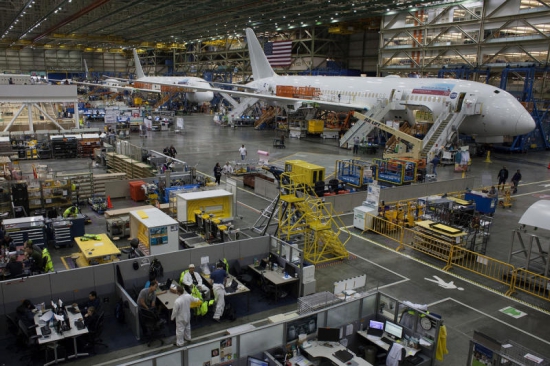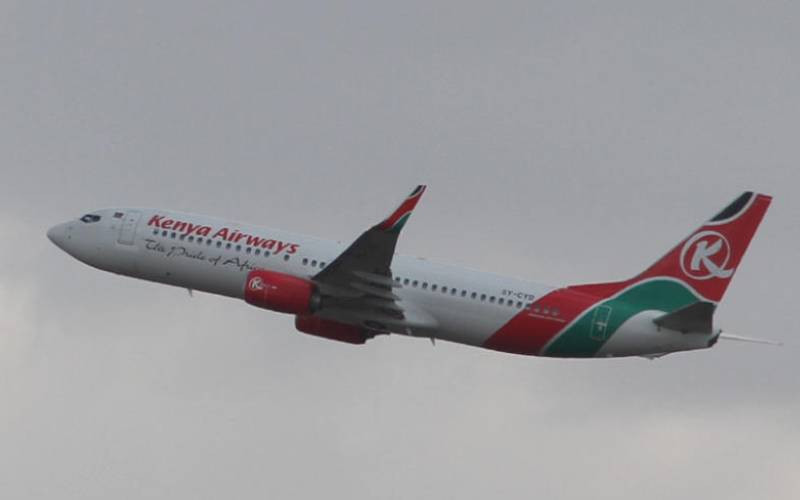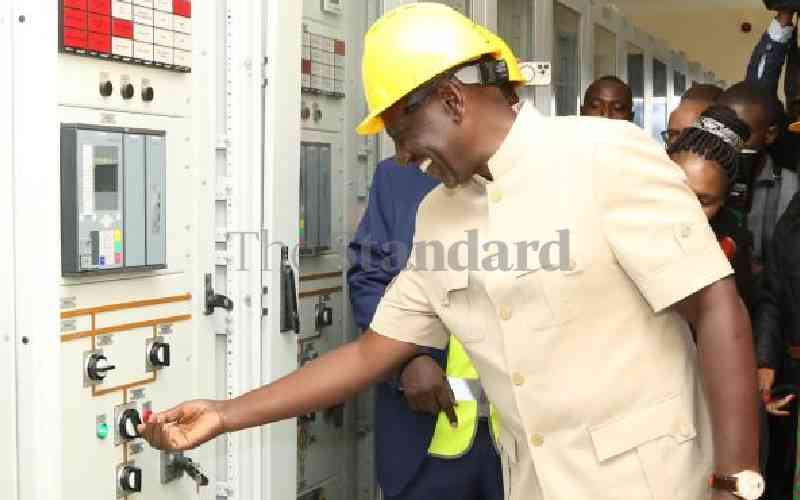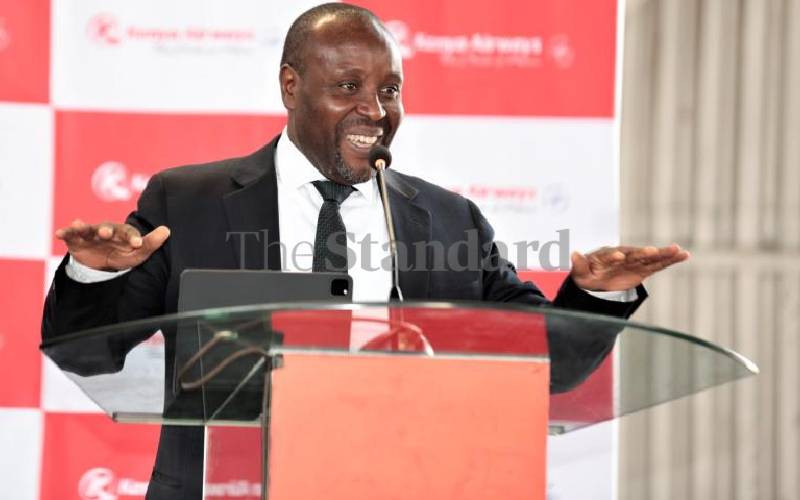
US aircraft maker, Boeing, has put on hold manufacture of two planes ordered by Kenya Airways after a financing deal fell apart.
The development further compounds the cash crisis at the national carrier coming at a time when it is negotiating with the Kenyan government and other shareholders for a fresh cash injection to shield it from collapse.
Bloomberg reported Thursday that the planes, Boeing 787 Dreamliners, were stranded outside a Seattle-area factory in the United States because the US Export-Import Bank was not available to bridge the financing gap.
It is understood that Boeing, Aviation Finance and the African Export-Import Bank were still trying to work out financing with Kenya Airways, which is in deep financial crunch after it reported a Sh25.7billion full year loss.
Kenya Airways is selling its assets, among them seven aircraft and a parcel of land in Embakasi as it negotiates for a loan from Afreximbank to save it from being declared bankrupt.
It expects to raise Sh10.2 billion ($100 million) from the land and aircraft sales but this will be a drop in the ocean given that it owes its suppliers over Sh20 billion.
The two Dreamliners are estimated to cost about Sh47 billion ($450 million), subject to discounts. It is also set to ignite fresh debate on why it stuck on an ambitious expansion strategy, dubbed Project Mawingu, when the market was changing for the worse.
Its fleet grew from 43 to 52 including two freighters as at the last financial year.
But the plan has been criticised on grounds that the airline is buying too many aircraft, most of them on loan. Kenya Airways had not responded to our inquiry on the status of the deal by the time we went to press.
But Boeing Spokesman Doug Alder is quoted by Bloomberg as having said the plane maker was “working closely” with the airline.
In adding 787s, KQ has a chance to cut its operating costs given the advanced model, which is lightweight.
The planes, the last pair of the nine ordered by the national carrier, are now in temporary storage at Boeing’s main wide-body aircraft plant in Everett, Washington.
The national carrier financed the first six of these planes through Ex-Im, which provided a Sh87.6billion ($835.1 million) authorisation to the carrier last year, according to the bank’s website. Afreximbank, the African trade bank, has said it helped work on that transaction.
Ireland’s AWAS Aviation Trading and Aviation Finance funded the seventh plane. But AWAS has since dropped out, and Dublin-based Aviation Finance has stepped in to provide direct financing to the airline.
Stay informed. Subscribe to our newsletter
Boeing probably would find it easy to line up a new buyer for the planes considering the fact that Dreamliner production slots are all sold out through to the end of the decade, Bloomberg reported.
This comes a day after it emerged that World Bank’s private lending arm, International Finance Corporation (IFC), is pushing for a seat on the board of the airline, suggesting it wants to have a say on how the airline is managed.
National Treasury Cabinet Secretary Henry Rotich said the demand for a board spot by the IFC will be granted “soonest”, but reckons that such changes would require review of the current shareholder agreement to accommodate IFC, which is Kenya Airways’s third largest stakeholder with a 9.56 per cent holding acquired during the 2012 rights issue.
“We are reviewing the shareholder agreement to accommodate the IFC, which has demanded a seat on the airline board,” Mr Rotich said on Tuesday.
 The Standard Group Plc is a
multi-media organization with investments in media platforms spanning newspaper
print operations, television, radio broadcasting, digital and online services. The
Standard Group is recognized as a leading multi-media house in Kenya with a key
influence in matters of national and international interest.
The Standard Group Plc is a
multi-media organization with investments in media platforms spanning newspaper
print operations, television, radio broadcasting, digital and online services. The
Standard Group is recognized as a leading multi-media house in Kenya with a key
influence in matters of national and international interest.
 The Standard Group Plc is a
multi-media organization with investments in media platforms spanning newspaper
print operations, television, radio broadcasting, digital and online services. The
Standard Group is recognized as a leading multi-media house in Kenya with a key
influence in matters of national and international interest.
The Standard Group Plc is a
multi-media organization with investments in media platforms spanning newspaper
print operations, television, radio broadcasting, digital and online services. The
Standard Group is recognized as a leading multi-media house in Kenya with a key
influence in matters of national and international interest.










